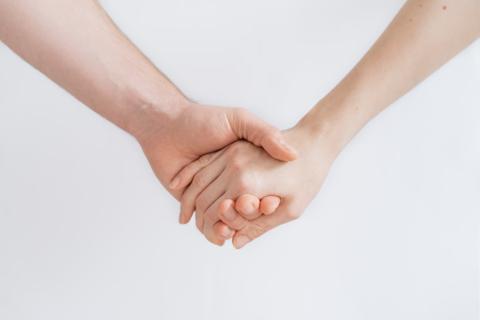🌿 How Not to Get Sick — The JK Lifestyle Way
In today’s fast-paced, processed-food-driven world, most people are sick without even realizing it. They may feel tired, gain belly fat, struggle with digestion, or experience mood swings — yet think it’s just “normal aging” or “stress.”
But behind these symptoms often lies a hidden enemy: insulin resistance.
What makes insulin resistance so dangerous is that it starts years before you’re ever diagnosed with diabetes or any other disease. It slowly disrupts your body’s natural metabolism and creates a toxic chain reaction.
Health Conditions Directly Linked to Insulin Resistance:
✅ Type 2 Diabetes
✅ Fatty Liver (NAFLD)
✅ High Blood Pressure
✅ PCOS (Polycystic Ovary Syndrome)
✅ Obesity (especially belly fat)
✅ High Triglycerides and Cholesterol Imbalance
🧠 But here’s the good news:
Insulin resistance is reversible—and you don’t need lifelong medication to do it.
💚 Dr. Jahangir Kabir’s Approach:
Heal from the root by following three powerful principles:
Clean Food
No sugar, no white flour, no processed poison
Intermittent Fasting
Let your body heal without constant insulin spikes
Discipline in Routine
proper sleep, exercise, hydration, and stress control

What Is Insulin Resistance & How It Damages Your Body
Insulin is a vital hormone produced by your pancreas. Its main job is to help glucose (sugar) from the food you eat enter your body’s cells—where it’s used for energy.
But here’s the problem…
When you frequently consume sugary foods, refined carbs, and eat too often, your body keeps producing more and more insulin to keep up. Over time, your cells become numb to insulin’s signal—they stop responding effectively.
This condition is called insulin resistance.
⚠️ What Happens When You Become Insulin Resistant?
🚨 Common Symptoms of Insulin Resistance:
🟥 Increased belly fat (especially around the waist)
🟥 Constant fatigue, especially after meals
🟥 Brain fog and poor concentration
🟥 Strong cravings for sweets and carbs
🟥 High fasting insulin and blood sugar levels
🟥 Skin darkening around the neck or underarms (acanthosis nigricans)
💡 Dr. Jahangir Kabir’s Insight:
⚠️ 2. What Causes Insulin Resistance?
Modern Lifestyle Triggers That Quietly Break Your Metabolism
Insulin resistance doesn’t happen overnight. It builds slowly—due to repeated daily habits that seem harmless but wreak havoc on your hormones over time. Most of these triggers are common in today’s urban lifestyle, especially in South Asia.
Below are the key culprits Dr. Jahangir Kabir warns against:
🟥 Frequent Eating
Eating every 2–3 hours (e.g., breakfast-snack-lunch-snack-dinner-dessert) keeps your insulin levels constantly high.
Your body never gets a break to burn stored fat or reset insulin sensitivity.
✅ Solution:
Shift to 2 meals/day or Intermittent Fasting (16:8 or OMAD)
🟥 High-Carbohydrate Diet
Regular consumption of rice, white bread, noodles, biscuits, sweets, and sugary snacks floods the blood with glucose.
Your body pumps out insulin again and again—eventually burning out the system.
✅ Solution:
Follow a Low-Carb, High-Fat (LCHF) or Keto-flex approach.
🟥 Sugary Beverages
Soft drinks, commercial fruit juices, milk teas, energy drinks—even if labeled "diet" or “natural”—are loaded with sugar or artificial sweeteners.
They cause sharp insulin spikes, especially when consumed on an empty stomach.
✅ Solution:
Drink plain water, green tea, lemon water, or black coffee (no sugar).
🟥 Lack of Physical Activity
Sitting all day (at desks, in vehicles, on the couch) reduces your muscle’s ability to absorb glucose.
Movement activates insulin receptors in muscles—without it, resistance builds.
✅ Solution:
Walk 7,000–10,000 steps daily. Add simple home exercises.
🟥 Sleep Deprivation
Sleeping less than 6 hours per night raises cortisol (stress hormone), which interferes with insulin and increases fat storage.
Even if you eat clean, poor sleep can trigger insulin resistance.
✅ Solution:
Prioritize 7–8 hours of deep, screen-free sleep every night.
Fasting — The Natural Insulin Reset
Let Your Body Heal Itself — Through Smart Eating Windows
One of the most powerful healing tools promoted by Dr. Jahangir Kabir is fasting.
Not starvation — but controlled time-restricted eating that gives your body a break from constant insulin stimulation.
Modern lifestyles involve frequent meals and snacks, keeping insulin high all day.
Fasting lowers insulin, activates fat-burning, and resets your metabolic system.
🛠️ Dr. Kabir’s Core Method: Intermittent Fasting (IF)
Start simple with:
- 16:8 method → Fast for 16 hours, eat during an 8-hour window (e.g., 12 PM to 8 PM)
Then gradually try: - OMAD (One Meal A Day) → Eat only once every 24 hours
- Dry Fasting → No food or water for 12–16 hours (only under proper guidance)
✅ All fasting methods are drug-free, natural hormone therapy.
Movement Is Medicine
Your Muscles Are the Key to Reversing Insulin Resistance
You don’t need fancy equipment or a gym membership to improve your insulin sensitivity. According to Dr. Jahangir Kabir, the simplest forms of movement — done consistently — can powerfully heal your body.
When you move your muscles, especially after meals, you burn glucose and reduce your insulin load. This helps your cells become more insulin-sensitive over time.
-
🚶♀️ Start with Daily Walking
- Target 7,000–10,000 steps per day
- Post-meal walking (10–15 minutes) helps reduce blood sugar spikes
- Break long sitting sessions with 2–3 minute stretch or walk breaks
“Your legs are like sugar-burning machines — keep them active.” – Dr. Kabir
- Target 7,000–10,000 steps per day
-
🧘♂️ Do Simple Home-Based Exercises
You don’t need to lift weights or go to the gym. Try:
✅ Bodyweight squats
✅ Push-ups against a wall or floor
✅ Chair dips or step-ups
✅ Basic yoga or stretching
⏱️ Even 15–20 minutes daily can boost metabolism and insulin sensitivity.

-
🏋️♂️ Incorporate Resistance Training (2–3x/week)
- Builds muscle mass, which uses glucose more efficiently
- Improves fat burning, hormone balance, and blood sugar control
- Use resistance bands, water bottles, or body weight to begin
- Builds muscle mass, which uses glucose more efficiently
-
🔁 🧍♂️ Stack Movement Throughout Your Day
Consistency beats intensity. Even small bursts of activity throughout the day can make a huge difference in reversing insulin resistance.
✅ Walk While You Talk – Take phone calls while pacing indoors or outdoors
✅ Climb, Don’t Ride – Choose stairs instead of elevators
✅ Stretch & Move Every Hour – 2–3 minutes of light movement prevents insulin spikes
✅ Household Work = Functional Fitness – Sweeping, mopping, gardening—all count
✅ TV Time = Move Time – Do squats, lunges, or stretches during ad breaks
Sleep Like a Healer
Your Metabolism Depends on Restorative Sleep
Sleep is not just recovery—it’s hormonal repair.
Dr. Jahangir Kabir emphasizes that poor sleep quality is a major root cause of insulin resistance, fat gain, and chronic fatigue.
🌙 Aim for 6–8 Hours of Deep, Uninterrupted Sleep
Without enough sleep:
🔺 Cortisol (stress hormone) rises
🔺 Hunger hormones (ghrelin) increase
🔺 Insulin becomes less effective
🔺 Sugar cravings worsen
✅ JK Lifestyle Sleep Habits:
- Avoid screens 1 hour before bed (blue light blocks melatonin)
- Sleep in complete darkness or use an eye mask
- Avoid caffeine after 2 PM
- No heavy food or sugary drinks within 2–3 hours of bedtime
Manage Stress, Heal Faster
High Cortisol = High Insulin Resistance
Chronic stress is one of the most overlooked causes of metabolic disorders. When you’re under pressure — emotionally, mentally, or physically — your body produces cortisol, the stress hormone.
Cortisol raises blood sugar, triggers cravings, disturbs sleep, and blocks insulin’s effect.
💡 Simple JK Lifestyle Tools to Lower Stress Naturally:
🌤 Morning Sunlight Exposure
- Balances melatonin and cortisol
- Supports better sleep and hormonal health
🌬 Deep Breathing & Grounding Exercises
- Just 5 minutes of slow breathing calms your nervous system
📝 Gratitude Journaling
- Shifts mindset from anxiety to awareness
🛐 Prayer or Mindfulness
Reduces heart rate, supports emotional control, and lowers stress hormones
Avoid Chemicals & Toxic Habits
Clean Lifestyle = Clean Hormones = Clean Insulin Response
Your body cannot heal in a toxic environment.
Exposure to food chemicals, bad habits, and unnecessary medications leads to inflammation, hormonal imbalance, and insulin resistance.
🛑 Refined oils (soybean, canola, sunflower)
🛑 Junk food, fast food, bakery items
🛑 Artificial sweeteners (aspartame, sucralose)
🛑 Long-term unnecessary medication without lifestyle correction
🛑 Alcohol and smoking — known to worsen liver and insulin function
✅ Choose organic, cold-pressed, clean alternatives
✅ Detox with water, lemon, pink salt, and fasting
Track & Celebrate Small Wins
Progress = Motivation = Consistency
Healing insulin resistance is not about perfection. It’s about progress.
Dr. Kabir encourages people to track simple, visible metrics and celebrate even the smallest victories.
📍 Fasting blood sugar (target: below 100 mg/dL)
📍 2-hour post-meal sugar (target: below 140 mg/dL)
📍 Waist circumference (abdominal fat = key insulin marker)
📍 Body weight (but don’t obsess)
✨ Better quality sleep
✨ Reduced sugar cravings
✨ Increased energy and clarity
✨ Fewer mood swings and irritability
✨ Improved digestion and skin




Follow a Community That Supports You
You Heal Faster When You’re Not Alone
One of the most powerful tools in JK Lifestyle is the community itself — filled with inspiring stories, expert guidance, and constant motivation.
